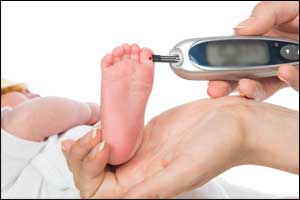- Home
- Editorial
- News
- Practice Guidelines
- Anesthesiology Guidelines
- Cancer Guidelines
- Cardiac Sciences Guidelines
- Critical Care Guidelines
- Dentistry Guidelines
- Dermatology Guidelines
- Diabetes and Endo Guidelines
- Diagnostics Guidelines
- ENT Guidelines
- Featured Practice Guidelines
- Gastroenterology Guidelines
- Geriatrics Guidelines
- Medicine Guidelines
- Nephrology Guidelines
- Neurosciences Guidelines
- Obs and Gynae Guidelines
- Ophthalmology Guidelines
- Orthopaedics Guidelines
- Paediatrics Guidelines
- Psychiatry Guidelines
- Pulmonology Guidelines
- Radiology Guidelines
- Surgery Guidelines
- Urology Guidelines
Blood sugar and glycemic control improves in kids by Combo therapy: Ellipse trial

Liraglutide plus Metformin improve blood sugar and glycemic control in kids.
Liraglutide, when added to metformin, is associated with significant improvement in blood sugar as well as glycemic control in children and adolescents with type 2 diabetes versus placebo.
These are the results from the Ellipse trial which have appeared in the New England Journal of Medicine. The results were simultaneously presented at the Pediatric Academic Societies annual meeting.
The incidence of type 2 diabetes in children and adolescents is increasing, with the increase driven by childhood obesity, and type 2 diabetes disproportionately affects disadvantaged minorities.Up till now the one and only drug formally tested in children with type 2 diabetes was metformin, and that study ended in 1999...the paper that was published with the results was in 2002.
Metformin is the regulatory-approved treatment of choice for most youth with type 2 diabetes early in the disease. However, early loss of glycemic control has been observed with metformin monotherapy. Whether liraglutide added to metformin (with or without basal insulin treatment) is safe and effective in youth with type 2 diabetes is unknown.
In a sample of 135 children aged 10-17 years,the researchers randomized patients with
type 2 diabetes to receive either daily subcutaneous liraglutide (up to 1.8 mg) or placebo for 26 weeks. All patients received metformin and counseling on diet and exercise. Liraglutide patients continued receiving the drug for an additional 26 weeks, while placebo patients continued metformin.
They found thatl liraglutide plus metformin demonstrated a 0.64 percentage point decrease in mean glycated hemoglobin levels at 26 weeks versus 0.42 percentage points for placebo (difference -1.06, 95% CI -1.65 to -0.46, P<0.001).
Fasting plasma glucose levels also decreased at 26 weeks and 52 weeks versus placebo, and more patients in the liraglutide group versus placebo attained glycated hemoglobin levels <7% (63.7% vs 36.5%, respectively).
Both groups had lost weight at 26 weeks, but only the liraglutide group was able to maintain the loss at 52 weeks.
The researchers concluded that in children and adolescents with type 2 diabetes, liraglutide, at a dose of up to 1.8 mg per day (added to metformin, with or without basal insulin), was efficacious in improving glycemic control over 52 weeks.However serious adverse events and gastrointestinal events were more common in the liraglutide group.
blood sugarClinical trialcombination therapyCombo therapydiabetesdiabeticEllipse trialglycemic controlimprovekidsLiraglutidemetforminNEJMNew England Journal of MedicineT2DMType-2 diabetes
Next Story
NO DATA FOUND

Disclaimer: This site is primarily intended for healthcare professionals. Any content/information on this website does not replace the advice of medical and/or health professionals and should not be construed as medical/diagnostic advice/endorsement or prescription. Use of this site is subject to our terms of use, privacy policy, advertisement policy. © 2020 Minerva Medical Treatment Pvt Ltd